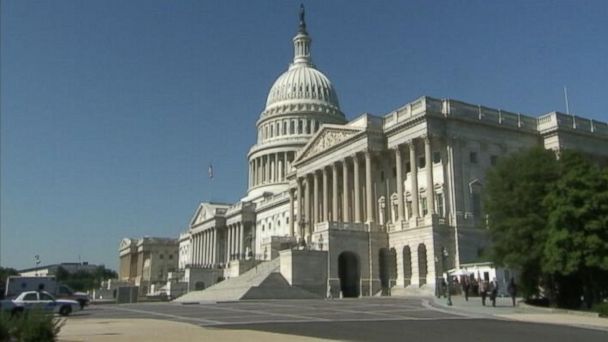College Student Details His Sexual Assault for Senate Committee

(ABC News)
Two survivors of sexual assault on a college campus testified before the Senate Health, Education, Labor and Pensions Committee today, sharing what steps they believe colleges, Congress and the U.S. Department of Education need to take to stem the sexual assault crisis occurring at many college campuses.
John Kelly, a student at Tufts University, also detailed how he said he was raped when he was a freshman and sophomore.
"When I was an 18-year-old college freshman, I entered into what would soon become an abusive relationship with another student. On the last night of my freshman year, he ignored my no's, raped me and then physically grabbed and restrained me, not letting me leave his room until I told him I loved him," Kelly said. "Three months later, during my first week back at school for my sophomore year, he raped me again."
Columbia Students Send a Message About Sexual Assault
Harvard Student Who Claims On-Campus Sexual Assault Slams University Policies
WATCH: Campus Crisis: Sexual Assault on Campuses
Kelly, who is now an activist for survivors of sexual assault, said he then went through a "traumatizing judicial process" when he reported the rape and said he was unprepared for the "humiliation I would endure at the hands of administrators that I trusted to protect me."
Tufts University was then under investigation for Title IX complaints, but the investigation was not made public at the time. The Department of Education announced in April that the Medford, Massachusetts, school had violated gender equity laws in how it treated sexual assault and harassment. After initially resisting the findings, Tufts said in May it would abide by measures laid out by the department's Office of Civil Rights.
"We look forward to working collaboratively with the OCR to address the terms of the agreement as we continue implementing best practices that meet the needs of our community," Tufts President Anthony P. Monaco said in a statement.
Kelly, who's still a student there, urged Congress to compel the Department of Education to continuously release lists of schools that are under investigation for Title IX complaints. The department made an unprecedented move earlier this year by announcing the names of 55 schools under investigation for how they handle sexual assault cases.
Emily Renda, who said she was raped as a first-year student at the University of Virginia in Charlottesville, and later served on the school's Sexual Assault Leadership Council, suggested that schools increase their education about peer support for survivors of sexual assault, saying many are afraid to come forward because of the response of their peers.
"Self-blame and victim-blame are among the primary factors that deter victims from reporting. Personal feelings of responsibility for an attack, especially when reinforced by peers, undermine a survivor's sense that it is his or her right to seek justice," Renda, who just graduated, said. "One survivor I worked with did not report her gang rape until almost a year later because almost immediately after the attack, she confided in peers who did not believe her, who told her she was wrong about what happened to her because those were all great guys."
Catherine Lhamon, the Education Department's assistant secretary for civil rights, applauded the schools that are making student safety a top priority, but warned that sexual assaults on college campuses is still "pervasive."
"Sexual violence is pervasive across too many of our campuses," Lhamon said. "We are committed to ending that reality in schools."
Sen. Tom Harkin, D-Iowa, the committee chairman, said, "No student should have to endure something so terrible as sexual assault while they're in college.
"This is an issue that has for far too long been swept under the rug, been put in the closet, try to hide it, we've got to address this forthrightly."